I recently went to Costa Rica on a Rainforest Alliance press trip to learn more about sustainable agriculture methods. This type of farming involves practices like protecting soil fertility and preventing soil erosion through crop rotation and cover crops. I had the opportunity to speak with farmers and farm managers. It was so interesting to see how adopting sustainable agriculture practices has affected their farms. I also got to find out why they chose to become certified. It was a wonderful experience and I am happy to be able to share it with you. I visited many examples of sustainable agriculture farms and this post will share my experience at a passion fruit farm and a Rainforest Alliance Certified Flowers farm.
Examples Of Sustainable Agriculture: Passion Fruit Farming & Rainforest Alliance Certified Flowers
What does sustainable agriculture mean exactly? The general idea behind sustainable agriculture is that of using practices that produce products over the long term without degrading the environment or social fabric of the area. It uses sustainable food systems to ensure continued food production for future generations. In application, it can mean slightly different things to different people. That is why certification programs, such as Rainforest Alliance Certification, have been developed using sustainability standards, such as those developed by the Sustainable Agriculture Network (SAN). This makes it easy for people to chose sustainable agriculture that is held to standards. Looking for the Rainforest Alliance Certification Seal with the green frog makes it easy to spot sustainable agriculture on your grocery store aisles.
Sustainable agriculture focuses on producing food in a way that preserves the environment, supports animal welfare, and promotes social equity. One of the key principles is preserving environmental health. Sustainable agriculture practices work to maintain soil health, reduce pollution, and conserve water. The employ techniques such as growing different crops in succession to improve soil health and reduce pests. These sustainable agriculture examples are focused on farms in Costa Rica. If you want more sustainable agriculture examples, check the end of this post. Sustainable agricultural practices should improved agricultural productivity while preserving environmental sustainability.
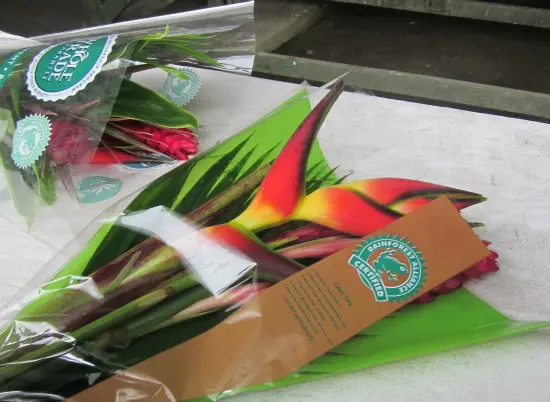
Look For The Rainforest Alliance Seal
The Rainforest Alliance certified seal means that they meet environmental, social, and economic sustainability standards. The seal makes it easy for consumers to spot products that they may wish to support. It is an easy way to make a difference.
“The Rainforest Alliance works to conserve biodiversity and improve livelihoods by promoting and evaluating the implementation of the most globally respected sustainability standards in a variety of fields. Through RA-Cert, the Rainforest Alliance’s auditing division, we provide our forestry, agriculture and carbon/climate clients with independent and transparent verification, validation and certification services based on these standards, which are designed to generate ecological, social and economic benefits.”
Verde Tica Passionfruit Farm Smallholders
This particular passion fruit farming visit was extremely interesting because it was to see a group of smallholder farmers. This means that each farmer (and his family) owns about 10 acres. Many of these small farms were given to the families by the Costa Rican government as a way to help those in need. Most of the farms produce a variety of produce- passionfruit, rice, corn, plantains, and cocoa. These farmers are currently working on achieving Rainforest Alliance Certification with the assistance of Chiquita.
Sustainable Agricultural Methods Training
My press group arrived at a training meeting being run by a Chiquita representative. He was teaching the farmers about safe pesticide handling. This is one small piece of the social aspect of Rainforest Alliance Certification. These farmers are already using pesticides on their crops. Now they can apply the safety practices they learn to all of their crops, not just the passionfruit that Chiquita will be buying from them.
The representative from Chiquita said that they are interested in buying their fruit from Rainforest Alliance Certified farms because the farms must adhere to standards. In this way, Chiquita can know that the crops they are buying are not over exposed to agrochemicals. It also ensures that the farmers are complying complying with fair social practices.
Agricultural Practices
Chiquita offers these small shareholders two year contracts with a fixed price, training, plantlets, and pick up of product. It is in Chiquita’s interest to help these farmers learn how to grow passionfruit in a way that is sustainable (environmentally, economically, and socially) so that they can continue to have a passionfruit supply. The relationship between Chiquita and the small shareholders is win-win. The Rainforest Alliance Certification helps make sure that the standards are those that will promote sustainability.
Passion-Fruit Farming In Costa Rica
After the workshop, we were able to go back to one of the new passionfruit farmers’ acreage. There were two generations of farmers tending the family land. They were so proud to show us their farm. The younger generation was all smiles and even snapped some photos of my group which made me laugh. Us taking pictures of each other seemed funny to me somehow.
The passionfruit occupied about .5 of their acres. They were growing plantains, cocoa, green coconuts, beans, pineapple, and some papayas as well. The passionfruit only take 6 months to go from plantlets to producing crops. The passionfruits themselves fall to the ground when they are ready. Passionfruit have a really beautiful flower and the fruit is very exotic to taste.
The farmers showed us around. They generously used a machete to hack open several green coconuts so we could drink out of them. They were very excited to share some passionfruits with us and they were delicious! It was a wonderful experience to see their farm and share their excitement.
And now, I will share an example of sustainable agriculture on a flower farm.
Rainforest Alliance Certified Flower Farm In Costa Rica:
We visited Plantas y Flores Ornamentales (P&F) tropical flower farm located in Río Jiménez de Guápiles, Costa Rica. The P&F flower farm first achieved certification in 2007. The farm covers about 450 acres total. It maintains natural forest cover on over 10% of its land, conserving buffer zones for rivers while expanding its vegetative barriers by planting native species. Preserving some forest area is one small part of Rainforest Alliance Certification.
We met with the Production Manager, Juan Pablo Villalobos. He is the man responsible for making sure that they meet the Rainforest Alliance certification standards. He said, “When they gave me the responsibility, I said there is no way we can do all of this. Now that we have come this far with so many improvements, I would say there is no way we could go back.” Those words really grabbed me. I think that they are at the crux of environmental issues as a whole. It seems too hard to make the changes, but once you make them you realize they weren’t as hard as you thought. Especially when you experience so many benefits.
What Are The Biggest Changes That P&F Made In Order to Achieve Certification?
P&F stopped burning their waste. They started composting and recycling. They started planting trees. P&F began conducting analysis on the quality of the water. They put in practice more stringent regulations on pesticide use. They increased worker training. We are talking about major improvements!
Benefits of Rainforest Alliance Certification:
Villalobos said, “In the start we became certified to be a leader at the market, but we find less worker accidents, we find that workers are protected from pesticides. We find we are saving money by making our own organic nutrients for the soil, we find less soil disease. We are making environmental and social improvements and it is not just for the market any more. It has brought the employees and their families forward and we can not go back. We can not accept less.” Then he showed us the new machine that breaks up the flower plant waste for composting. He was excited and I could feel it.
The visit to P&F was really beautiful. We began at their tropical flower packing plant. The flowers come in and get washed and submersed in a hot pepper dip to repel bugs. The flowers are cut just right and sorted. Then they are packaged in groups or in bouquets and boxed for delivery. I asked one lady, “It is so beautiful but do you just get used to if after seeing it everyday”? She said, “For me, no. It is still beautiful everyday.”
Photos of Tropical Flowers Produced Through Sustainable Agriculture
Here are a few photos of the beautiful tropical flowers I saw:
After looking at all the beautiful gathered flowers, we went to see the section of preserved rainforest and the flower fields. In the small section of rainforest that we walked through, it was covered with plants, lots of birds, and insects. We even spotted 3 Blue Jeans Poison Dart Frogs!
Then when we left the rainforest area we walked straight into the flower farm area. About 5 minutes later we spotted 3 sloths! There were two in one tree that was towering above the flowers. The third sloth was in another tree about 25 feet away that also towered over the flowers below. I felt very lucky to see them. The farmers were surprised at how excited we were. They said that they are proud to have the sloths living there and that is why they keep the trees. Preserving wooded areas between fields helps maintain wildlife habitats and has a huge positive impact on the natural environment.
It was fun spotting the beautiful tropical flowers in amongst their foliage. There were so many pretty shots at the P&F flower farm! Here are a few views below:
I hope you enjoyed learning about Rainforest Alliance certified flowers as much as I did.
Rainforest Alliance Certified Banana Farm In Costa Rica
The Empresa de Servicios de San Alberto SA is a group of Rainforest Alliance Certified banana farms that covers 690 acres. To earn the Rainforest Alliance Certification they must meet extensive guidelines that show environmental, social and economic sustainability. The group of banana farms I visited first achieved certification in 1998. They have about 450 workers total with about 55 of those being administrative. They pack about 500,000 boxes of bananas annually.
The press group I was with interviewed Jorge Guerrero Hernandez, Coordinator for sustainability. The 3 owners of the group of banana farms started Empresa de Servicios in order to do the all the logistics for the farms including harvesting and accountability for certification. After the interview, we got to tour a bit of the farm and tour the banana packing plant. It was so awesome to see how it all worked from field to stickered bananas in boxes.
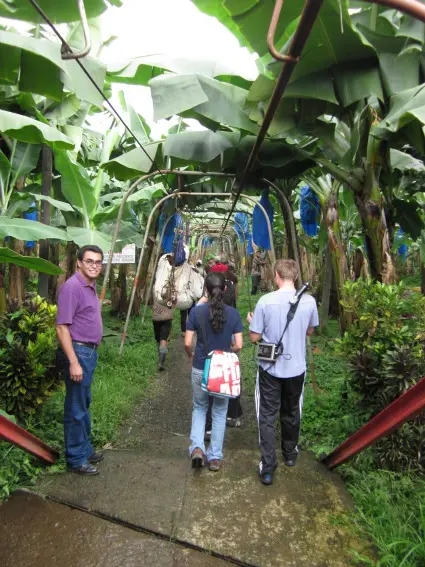
Why Were The Banana Farmers Interested in Certification?
In Jorge’s words, “From the beginning the owners wanted to care for the workers and the health of the farms but they didn’t have records or rules. They felt that they didn’t get any recognition for their extra work so they began working with ECO-OK through EARTH university so that people would know their sustainable work. The Rainforest Alliance Provided the first guidance and they were able to track and document how workers were being treated and learn sustainable methods for farming.”
What Changes Did Rainforest Alliance Certification Bring?
One of the most important changes were controls on using Agro chemicals.
Savings on cost of agrochemicals is a benefit because now we know we don’t have to use as much for them to still be effective.
Also protection of the workers, benefits for the workers, protecting the roadways between the crop and the infrastructure with barriers, protection of water sources, reduction of water use, soil analysis, and water analysis.
Certification requires minimum wage and regulates limits on hours worked. On a conventional plantation there is 30 percent turnover, on a certified farm the turnover is only 5%. (That goes to show that social sustainability can equal economic sustainability.)
The Rainforest Alliance requires that they document worker benefits. Some of these are a doctor for the workers and community, donated land for the community school, night school classes, workshops for the community on waste management, and a sports field.
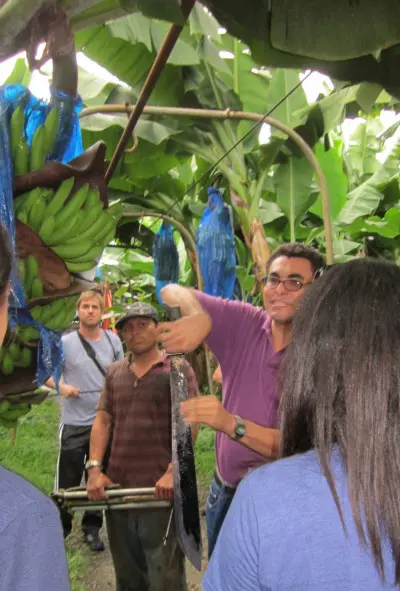
The bananas are covered in a blue perforated plastic to protect them from the sun and from bugs. This plastic is collected later in the processing and recycled. The workers select a bunch of bananas that are ready and two or three of them work together. One uses a machete to place a few hacks into the banana truck. Then as it begins to fall, the other worker places inserts between the banana bunches to protect them. Next, the bunch is cut off and hauled to the metal tracks and hung on a chain. Some Rainforest Alliance Certification things to notice in the photo below is that they do a ground cover between the banana trees. This prevents erosion and they will use the banana plant they cut down for compost.
Here is a peek at the banana processing plant:
Chiquita buys the banana farmers’ best quality bananas, about 95%. Chiquita requires certification to work with the farms, so this is another benefit of getting Rainforest Certification which is an ongoing process to stay qualified and able to use the certification seal. The bananas are marked with Chiquita Banana Stickers that say Rainforest Alliance Certified.
Conclusion
There are several key principles and practices involved in sustainable agriculture. From planting crops that cover the soil, preventing erosion, and improving soil quality to avoiding synthetic chemicals and GMOs, focusing on natural inputs, sustainable farming is all about not degrading the farm land itself. Through Integrated Pest Management (IPM), they focus on using natural predators and minimizing chemical use. They embrace Agroforestry which is the practice of combining trees and shrubs with crops or livestock to improve biodiversity.
The benefits of sustainable agriculture are many. Sustainable agriculture is a holistic approach that aims to create a balanced and enduring agricultural system with these benefits:
- Environmental Protection: Reduces pollution and conserves natural resources.
- Biodiversity: Promotes a variety of species in agriculture.
- Resilience: Builds resilience against climate change and market fluctuations.
- Community Health: Provides healthier food options and supports local economies.
If you love the rainforest and are excited about the work the Rainforest Alliance is doing to spread sustainable practices, you may want to check out their Kids’s Corner. It has free, fun resources to share with your children the love of nature and knowledge to go with it.
I hope you enjoyed these sustainable agriculture examples as it refers to a specific type of farming so you can get a feel for the true impact it has. Do you have any questions about passion fruit farming?
Related Posts:

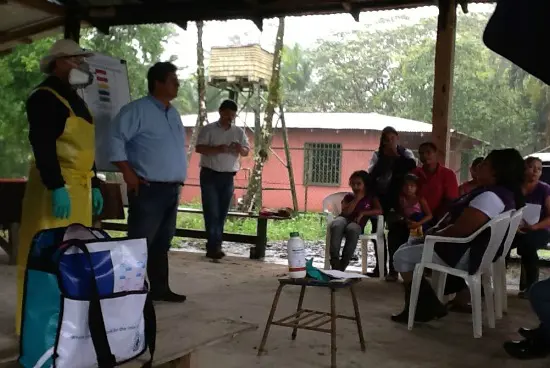
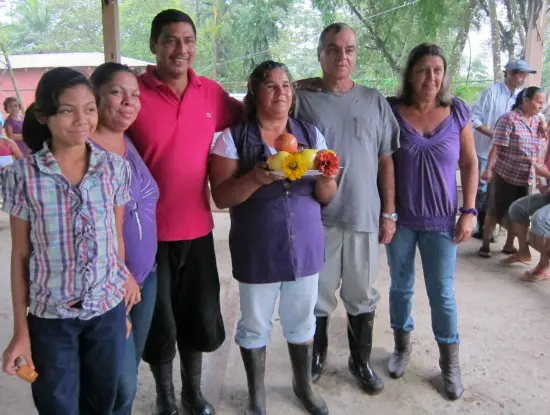
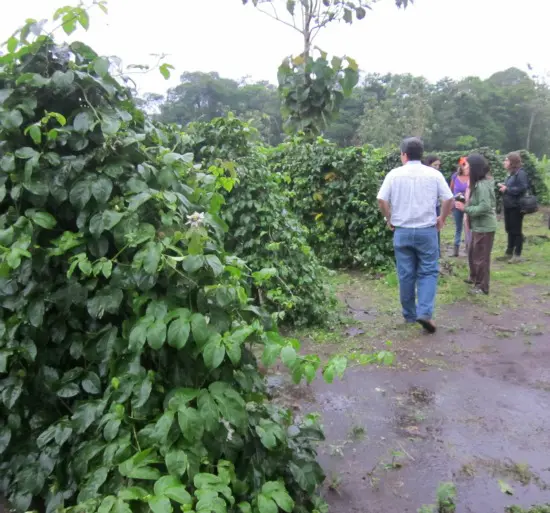
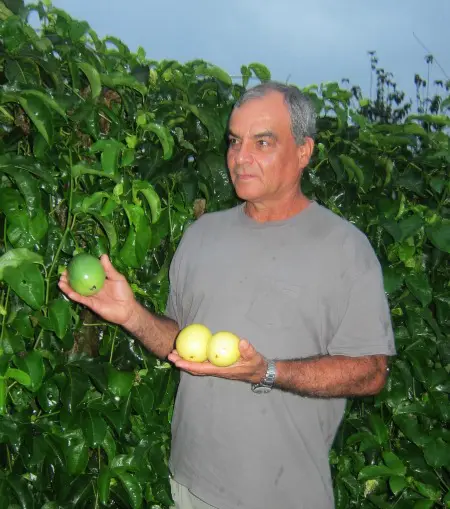
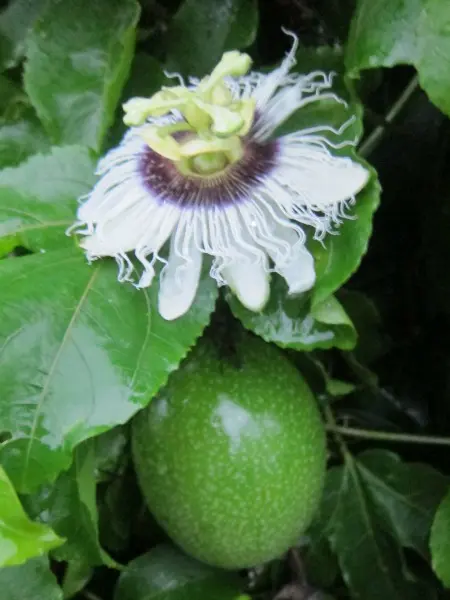
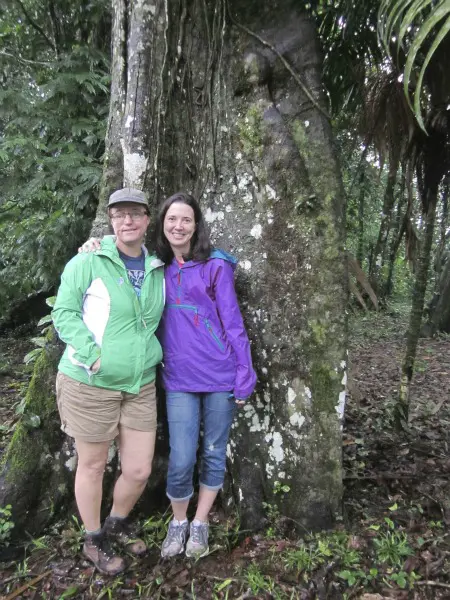
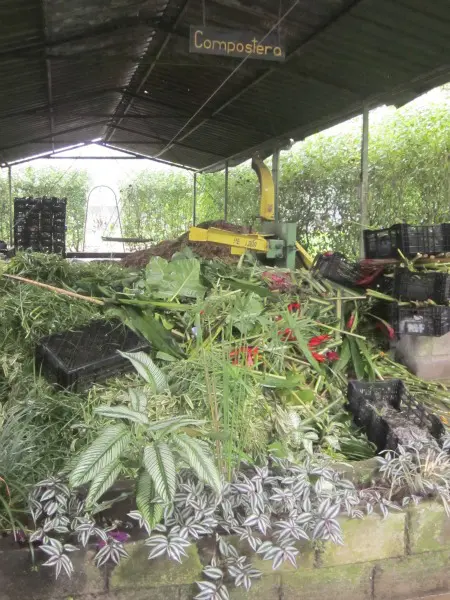
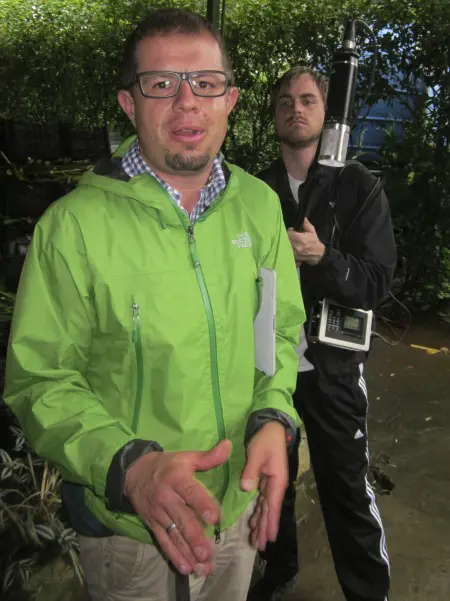
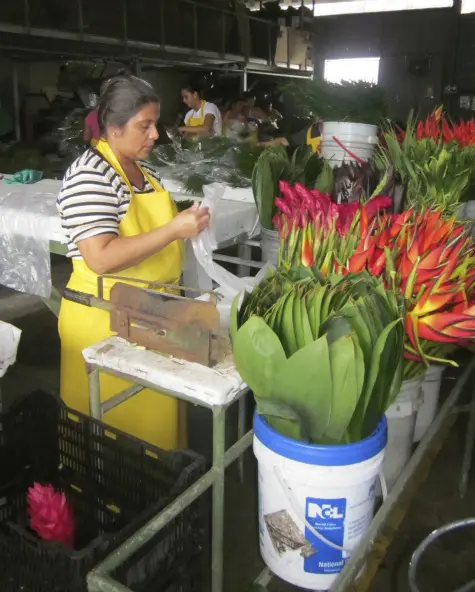
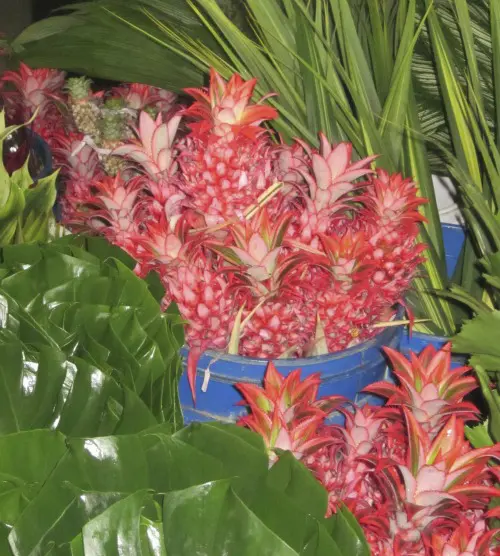
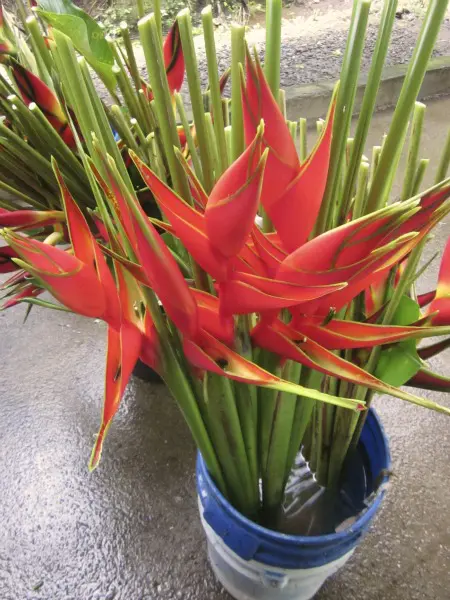
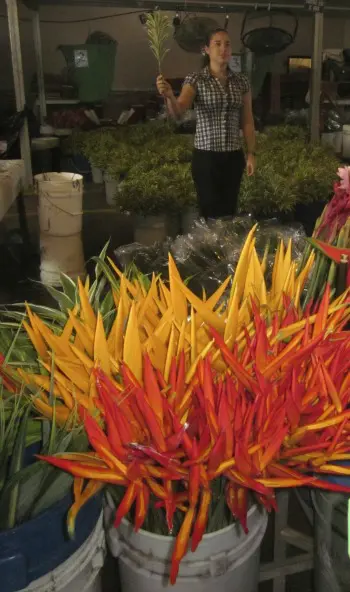
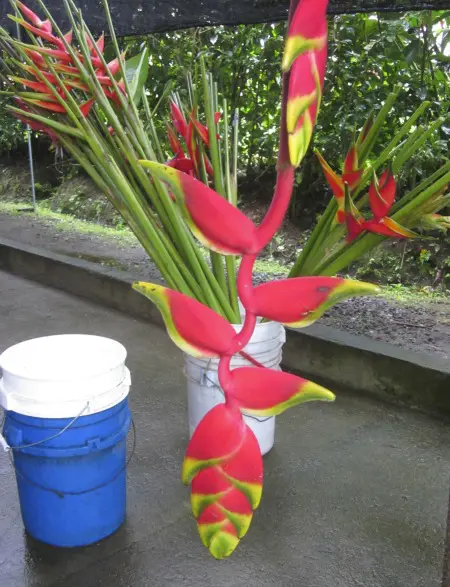
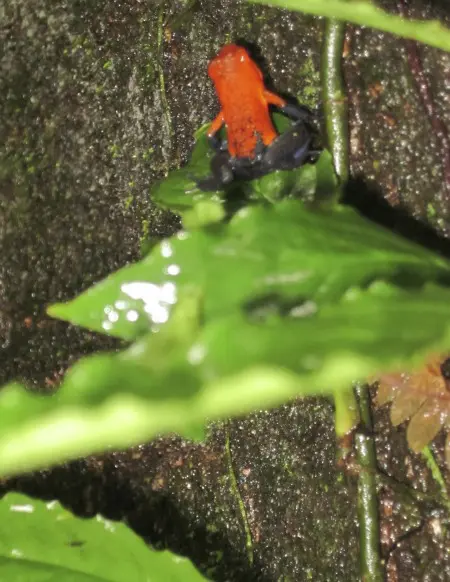
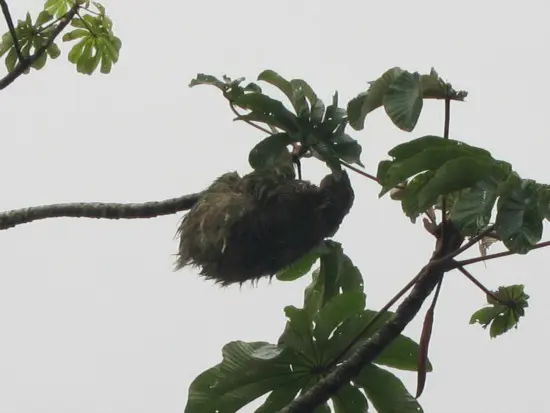
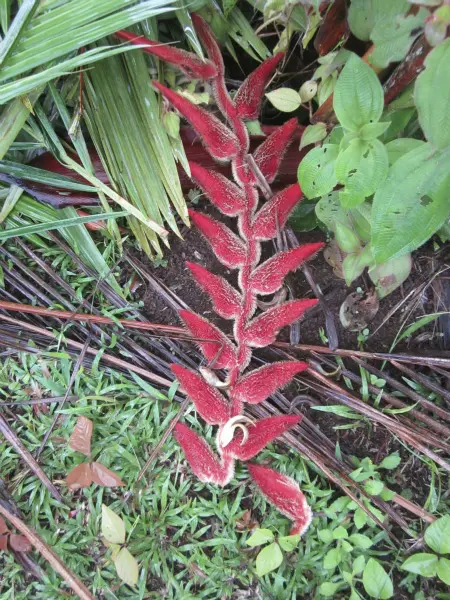
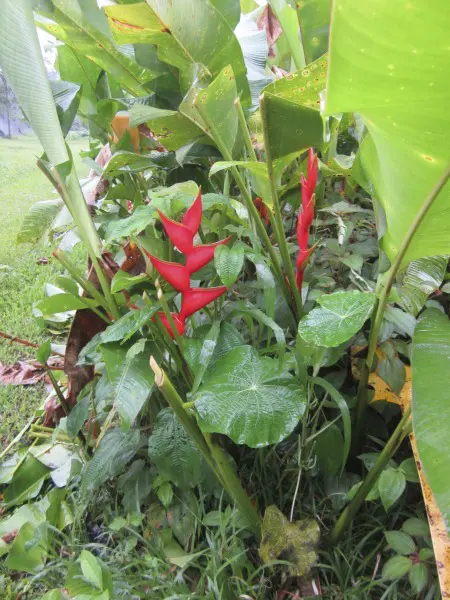
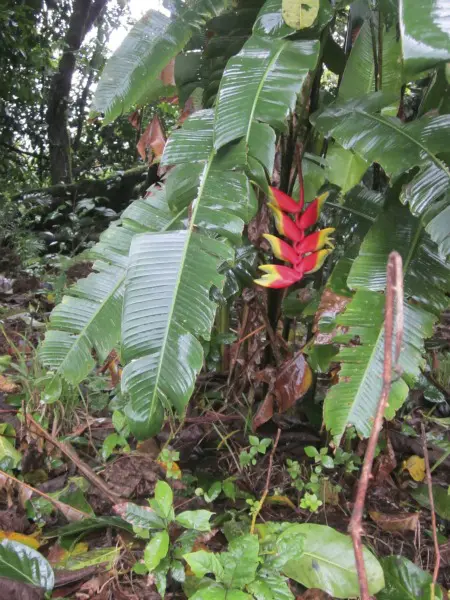
Robin (Masshole Mommy) says
Would you believe that at my ripe old age of er….29, I have never tried passion fruit? After reading your post on sustainable farms, I want to run right out and try some. It was so interesting learning a bit about agricultural sustainability. Thanks for sharing your experience.
Adam says
A commitment to Sustainable agriculture gives a grower the flexibility to address potential cataclysmic threats to their vineyard while remaining a faithful steward of the lands they are working. The goal of Sustainable agriculture is to farm Organically when possible, while retaining the ability to react to problems that might otherwise ruin a harvest.